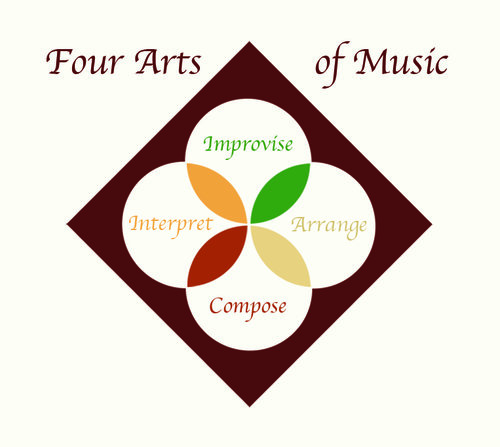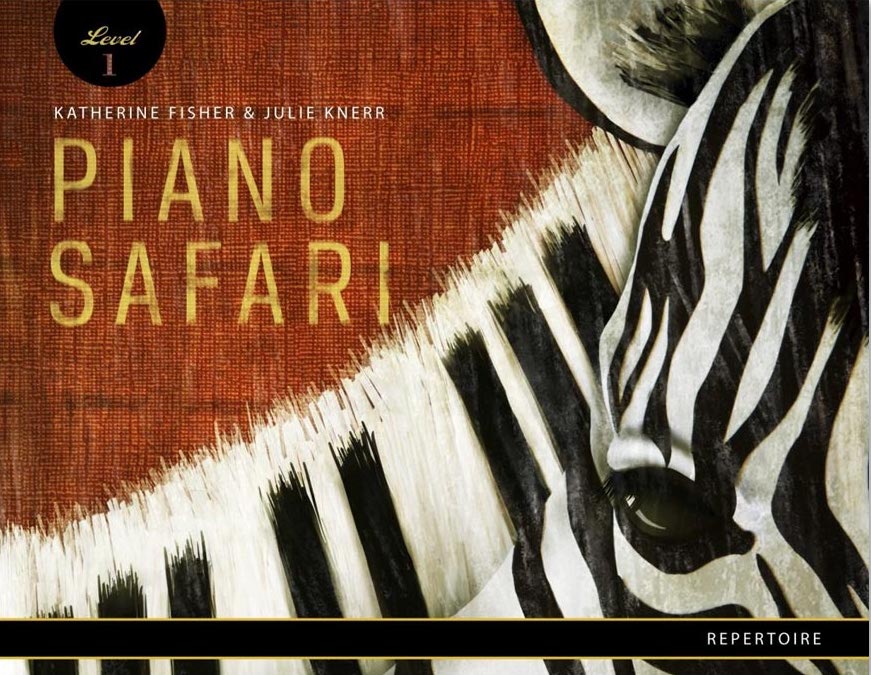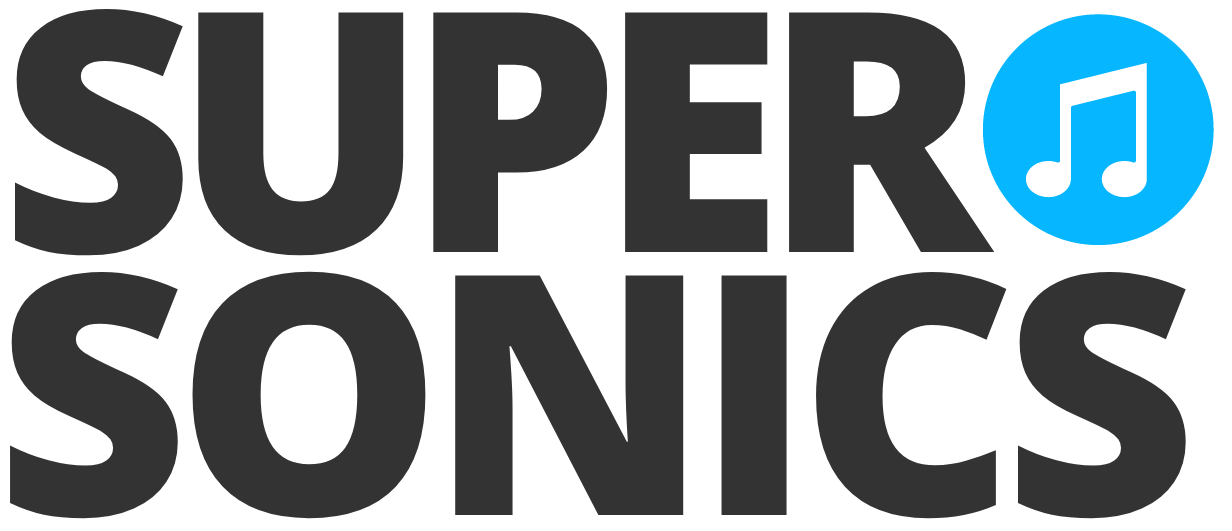Holistic Music For Kids focuses on creativity, and student-centred learning.
We use innovative methods to develop technical and creative skills, and the full range of musical skills including reading, theory, improvisation, composition & songwriting, and ear-based learning.
All while also nurturing a personal relationship to sound, creativity and your child's unique love of music.
Here's how we do that:
Working through Method Books - carefully chosen by us for their innovative and creative approaches
Learning songs and pieces your child loves - whether that's the latest pop song melody, the theme from Harry Potter or Minecraft, or another movie or game. We also teach applied music theory through their favourite music, so your child learns principles that they can use in their own creativity.
Learning how to compose music and improvise, for creative expression and piano "free play".
Using carefully selected music education apps to accelerate your child's learning and bring the fun of games into their musical development
Learning basic mindfulness and flow techniques in music practice, so it becomes relaxing and pleasurable - and addictive! With the added benefit of learning these hugely beneficial life skills.
A Word on Exams:
I have guided many students over the years through exams with the Australian Music Examinations Board (AMEB). I am happy to embark on this journey with students - if it holds interest and enthusiasm for them.
However, it is not the focus of my teaching with kids, and it is not something I will push for. If you and your child do wish to undertake this process, we can discuss it further and an appropriate approach to keeping the spirit of music and creativity alive for them.
To enquire about lessons for your child or teen, fill in the enquiry form and we will get back to you to discuss their musical journey!

Methods We Use:
Forrest Kinney:
The Four Arts Of music
A philosophy of teaching which gets to the heart of how music should be taught - connected to feeling and creativity, first.
The late Forrest Kinney was a brilliant leader in music education, and has created a legacy in his philosophy and method which is a breath of fresh air in music education.
The Four Arts of Music are:
Interpret: To play existing music in your own way
Arrange: To play existing music using different instruments, styles, and ideas
Improvise: To "speak" music, using knowledge of music theory (like a conversation)
Compose: To write original music (like writing poetry, a speech, or a book)
Through his books, such as Create First!, Pattern Play, Puzzle Play and Chord Play, I guide students into a deeper understanding of music and their own relationship to sound and creativity, guided by his philosophy.
Piano safari
An innovative method with a broad, balanced and fun approach.
Using animal metaphors, a wide range of musical skills are taught:
Notation Reading
Music Theory concepts
Pattern learning
Developing ear and memory skills
Improvisation
Children are also given the opportunity to play engaging music beyond their reading level, which gives a greater sense of satisfaction and motivation in their learning.
Learn more about the method here
Supersonics
by Daniel McFarlane
An engaging and innovative series of books to teach a wide range of musical skills, such as:
Sight Reading
Engaging Original Repertoire
Pattern-Based Learning
Improvisation
Chords and Lead Sheets
Popular Styles
Composition
Supersonics came out of Daniel McFarlane's own teaching work, responding to the needs and engagement of his own students. Has has created a truly contemporary method of teaching piano, which has evolved with the times and teaches relevant skills to today's musical world.
Learn More about SuperSonics here

Holistic Music For Kids focuses on creativity, and student-centred learning.
We use innovative methods to develop technical and creative skills, and the full range of musical skills including reading, theory, improvisation, composition & songwriting, and ear-based learning.
All while also nurturing a personal relationship to sound, creativity and your child's unique love of music.
Here's how we do that:
Working through Method Books - carefully chosen by us for their innovative and creative approaches
Learning songs and pieces your child loves - whether that's the latest pop song melody, the theme from Harry Potter or Minecraft, or another movie or game. We also teach applied music theory through their favourite music, so your child learns principles that they can use in their own creativity.
Learning how to compose music and improvise, for creative expression and piano "free play".
Using carefully selected music education apps to accelerate your child's learning and bring the fun of games into their musical development
Learning basic mindfulness and flow techniques in music practice, so it becomes relaxing and pleasurable - and addictive! With the added benefit of learning these hugely beneficial life skills.
A Word on Exams:
I have guided many students over the years through exams with the Australian Music Examinations Board (AMEB). I am happy to embark on this journey with students - if it holds interest and enthusiasm for them.
However, it is not the focus of my teaching with kids, and it is not something I will push for. If you and your child do wish to undertake this process, we can discuss it further and an appropriate approach to keeping the spirit of music and creativity alive for them.
To enquire about lessons for your child or teen, fill in the enquiry form and we will get back to you to discuss their musical journey!
Methods We Use:
Forrest Kinney:
The Four Arts Of music
A philosophy of teaching which gets to the heart of how music should be taught - connected to feeling and creativity, first.
The late Forrest Kinney was a brilliant leader in music education, and has created a legacy in his philosophy and method which is a breath of fresh air in music education.
The Four Arts of Music are:
Interpret: To play existing music in your own way
Arrange: To play existing music using different instruments, styles, and ideas
Improvise: To "speak" music, using knowledge of music theory (like a conversation)
Compose: To write original music (like writing poetry, a speech, or a book)
Through his books, such as Create First!, Pattern Play, Puzzle Play and Chord Play, I guide students into a deeper understanding of music and their own relationship to sound and creativity, guided by his philosophy.
Piano safari
An innovative method with a broad, balanced and fun approach.
Using animal metaphors, a wide range of musical skills are taught:
Notation Reading
Music Theory concepts
Pattern learning
Developing ear and memory skills
Improvisation
Children are also given the opportunity to play engaging music beyond their reading level, which gives a greater sense of satisfaction and motivation in their learning.
Learn more about the method here
Supersonics
by Daniel McFarlane
An engaging and innovative series of books to teach a wide range of musical skills, such as:
Sight Reading
Engaging Original Repertoire
Pattern-Based Learning
Improvisation
Chords and Lead Sheets
Popular Styles
Composition
Supersonics came out of Daniel McFarlane's own teaching work, responding to the needs and engagement of his own students. Has has created a truly contemporary method of teaching piano, which has evolved with the times and teaches relevant skills to today's musical world.
Learn More about SuperSonics here
PATHS ON
THE JOURNEY
Our work together includes a customised combination of the following disciplines, to curate exactly what you need to progress towards your musical dreams.

MUSIC COACHING
- Creating your pathway
- Establishing habits
- Working through challenges
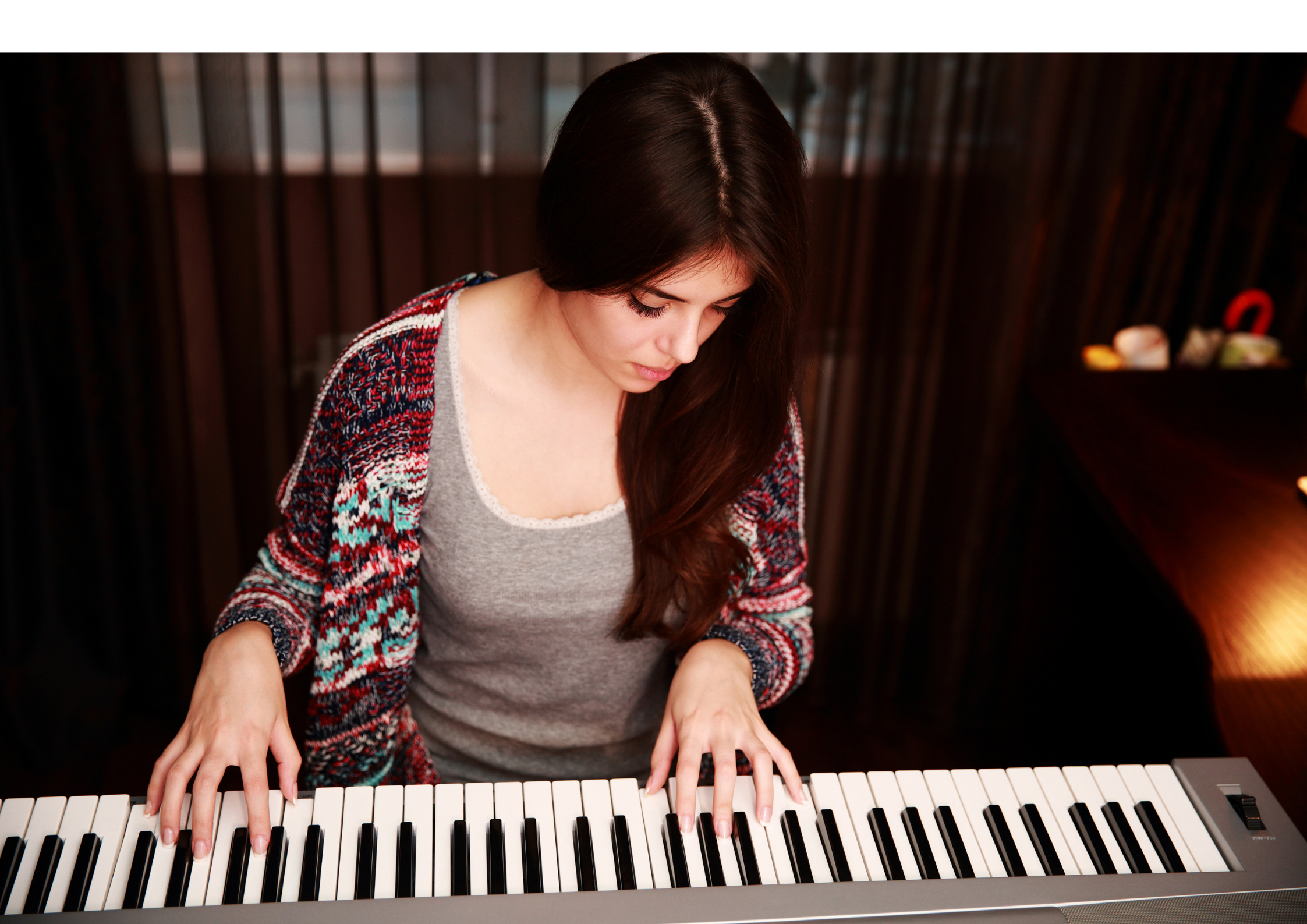
INSTRUMENTAL TUITION
- The 'how-to' of your instrument(s)
- Specialising in keyboard and voice
- Other instruments available
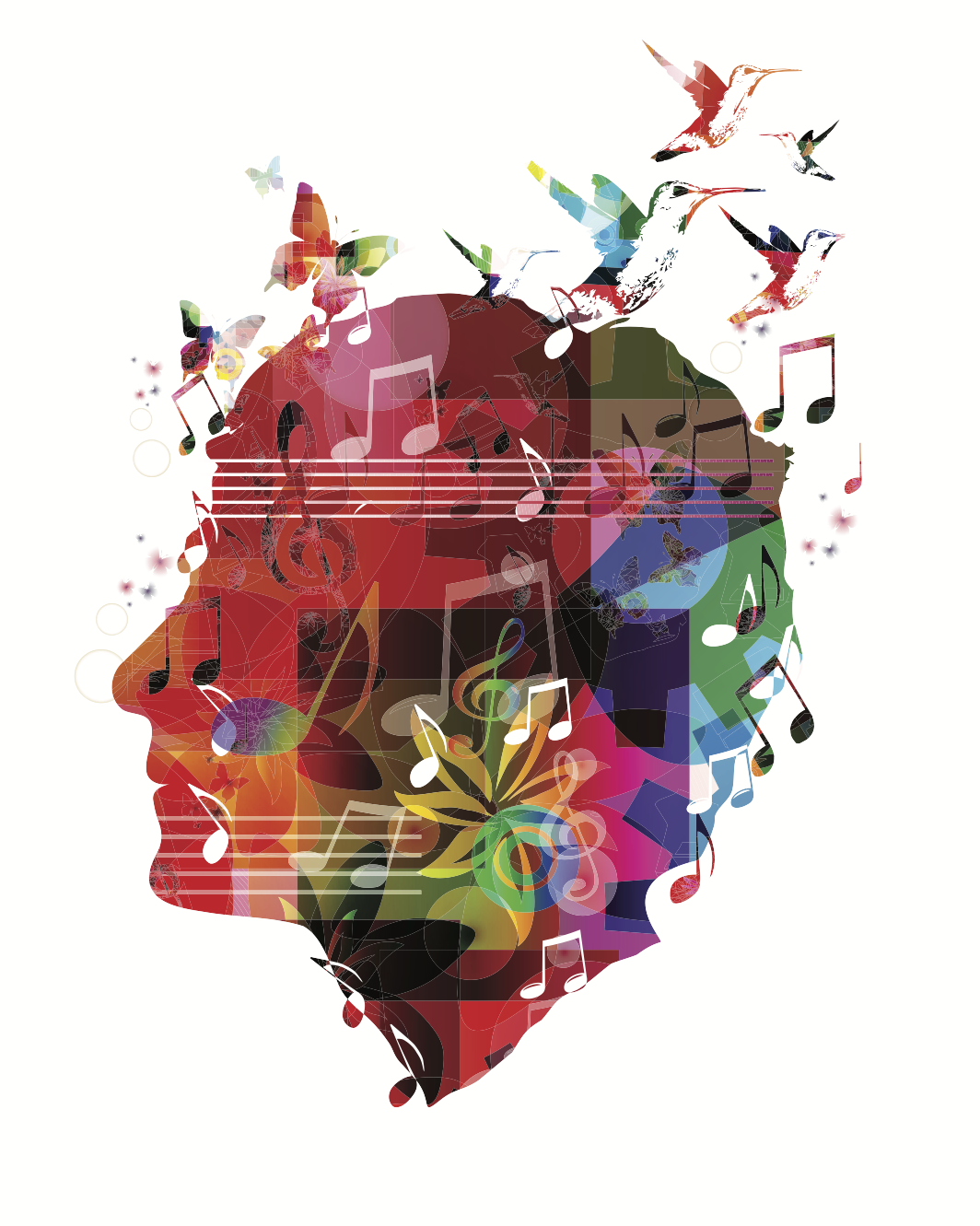
CREATIVE MUSICALITY
- Fundamental skills and knowledge that support all music
- Learning through creativity
- Understanding the musical language

PERSONAL GROWTH TOOLS
- Mindset Tools
- Meditation and Mindfulness
- Practicing in Flow
- Self-Relationship Practices
- Self - Realisation
Thankyous from past students
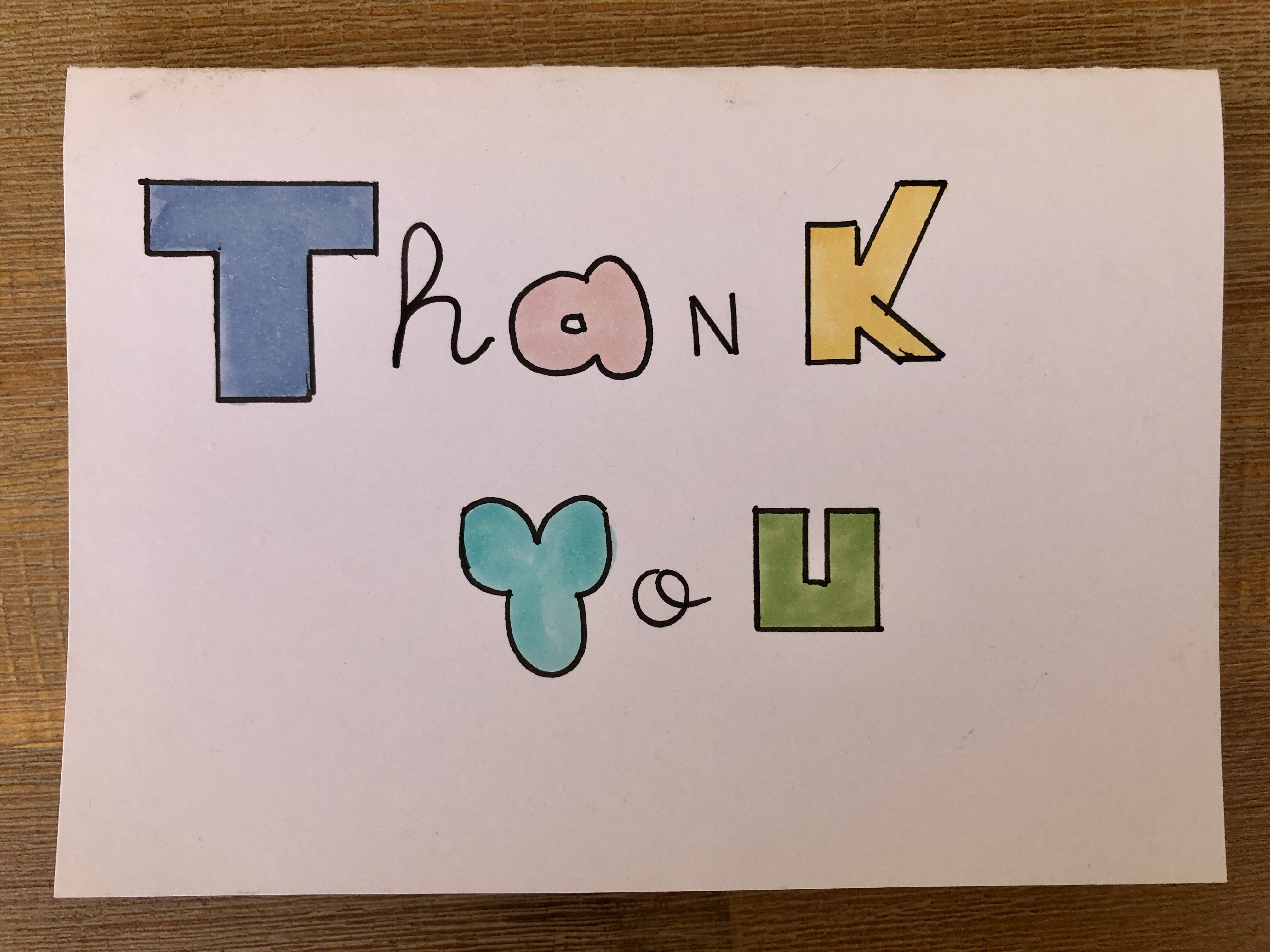
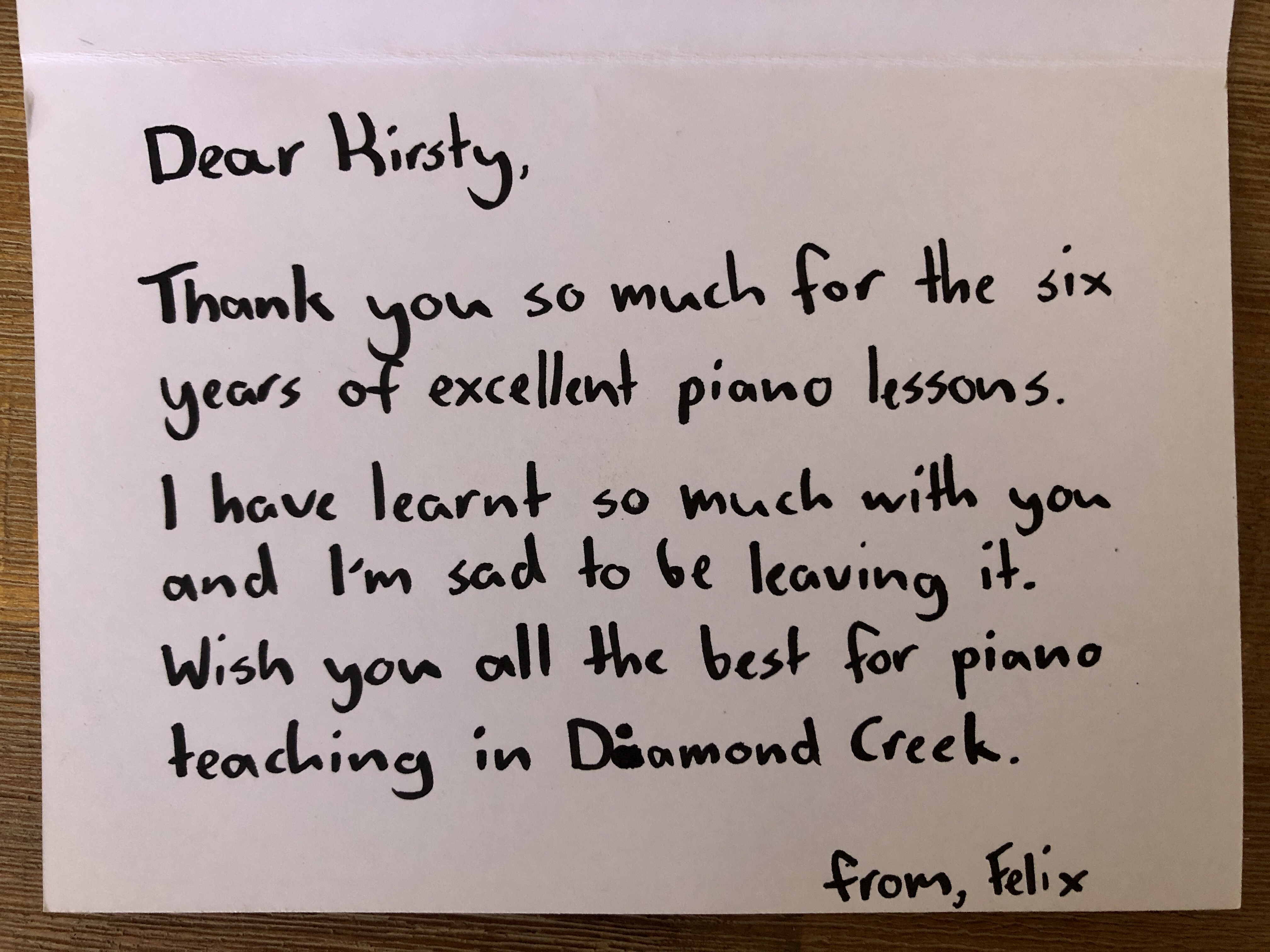
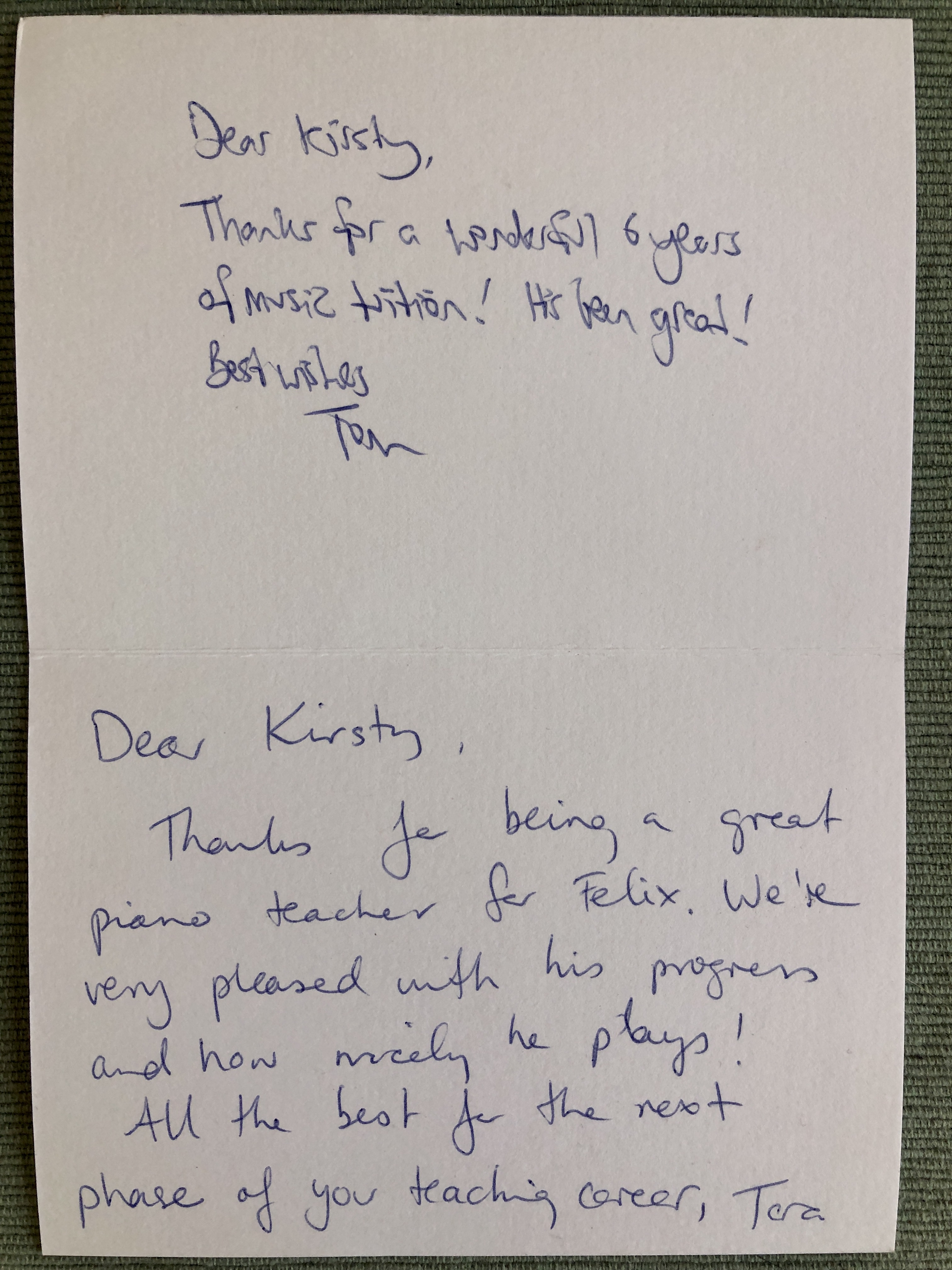
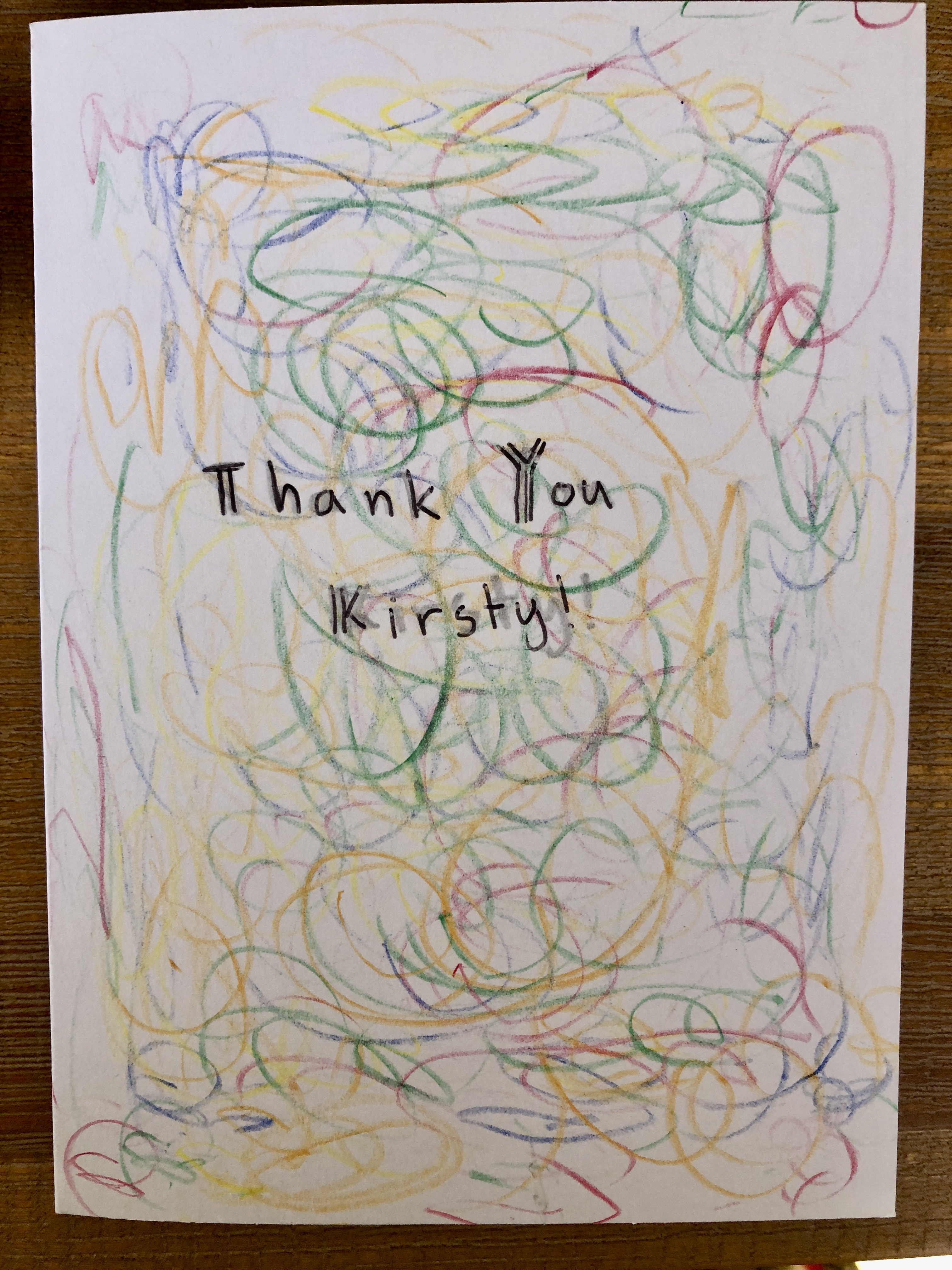
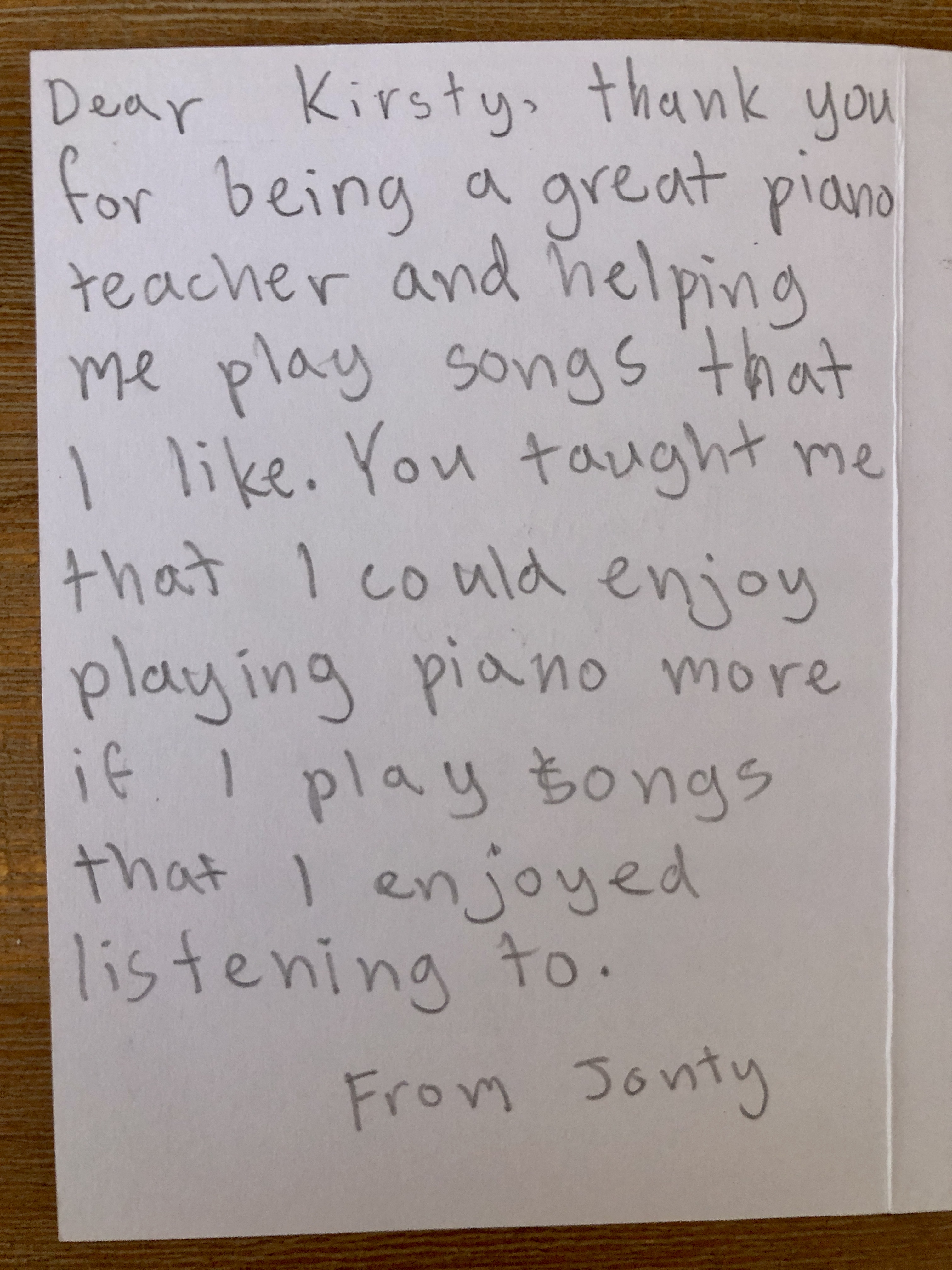
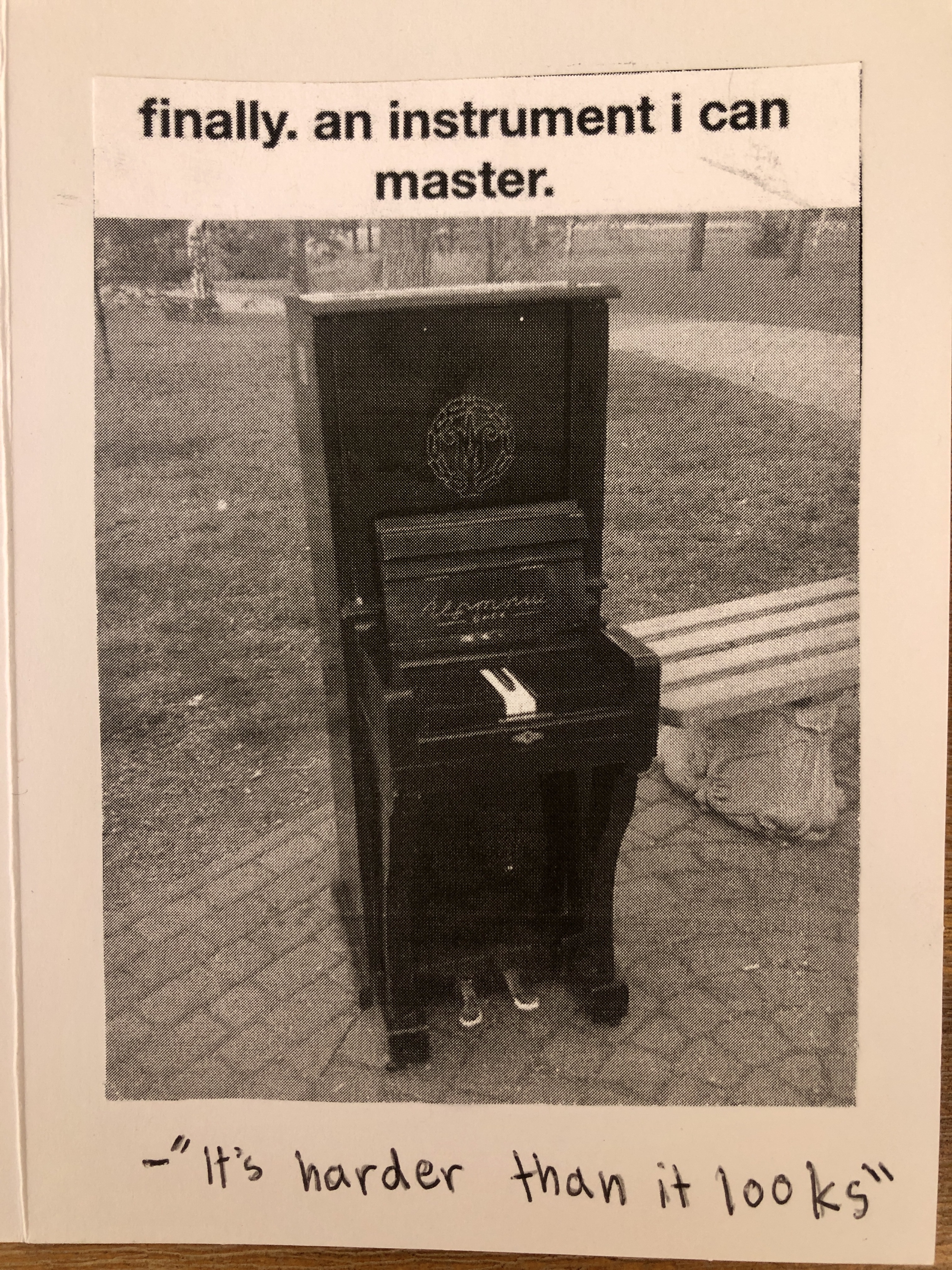
This one made me lol 😂
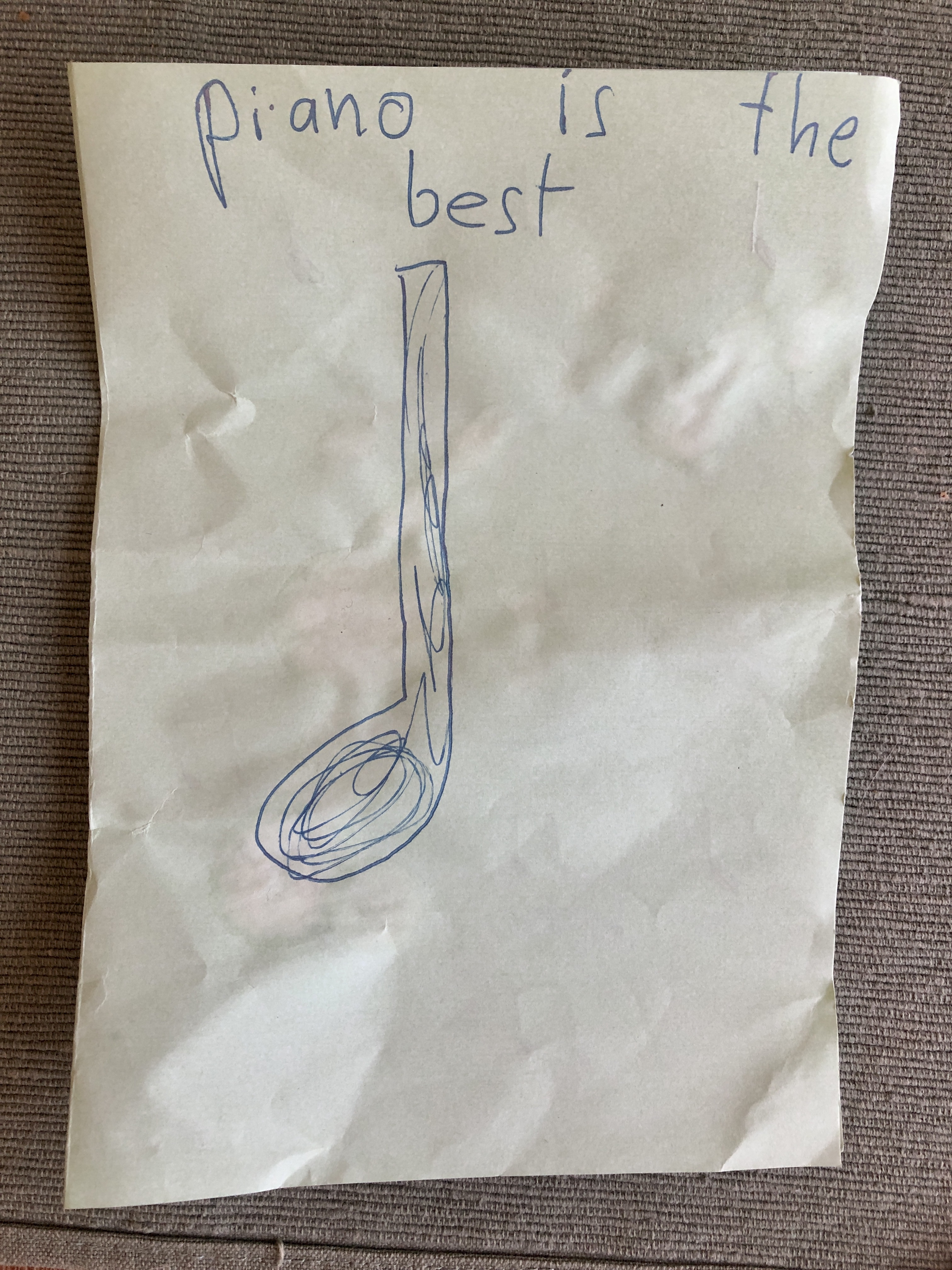
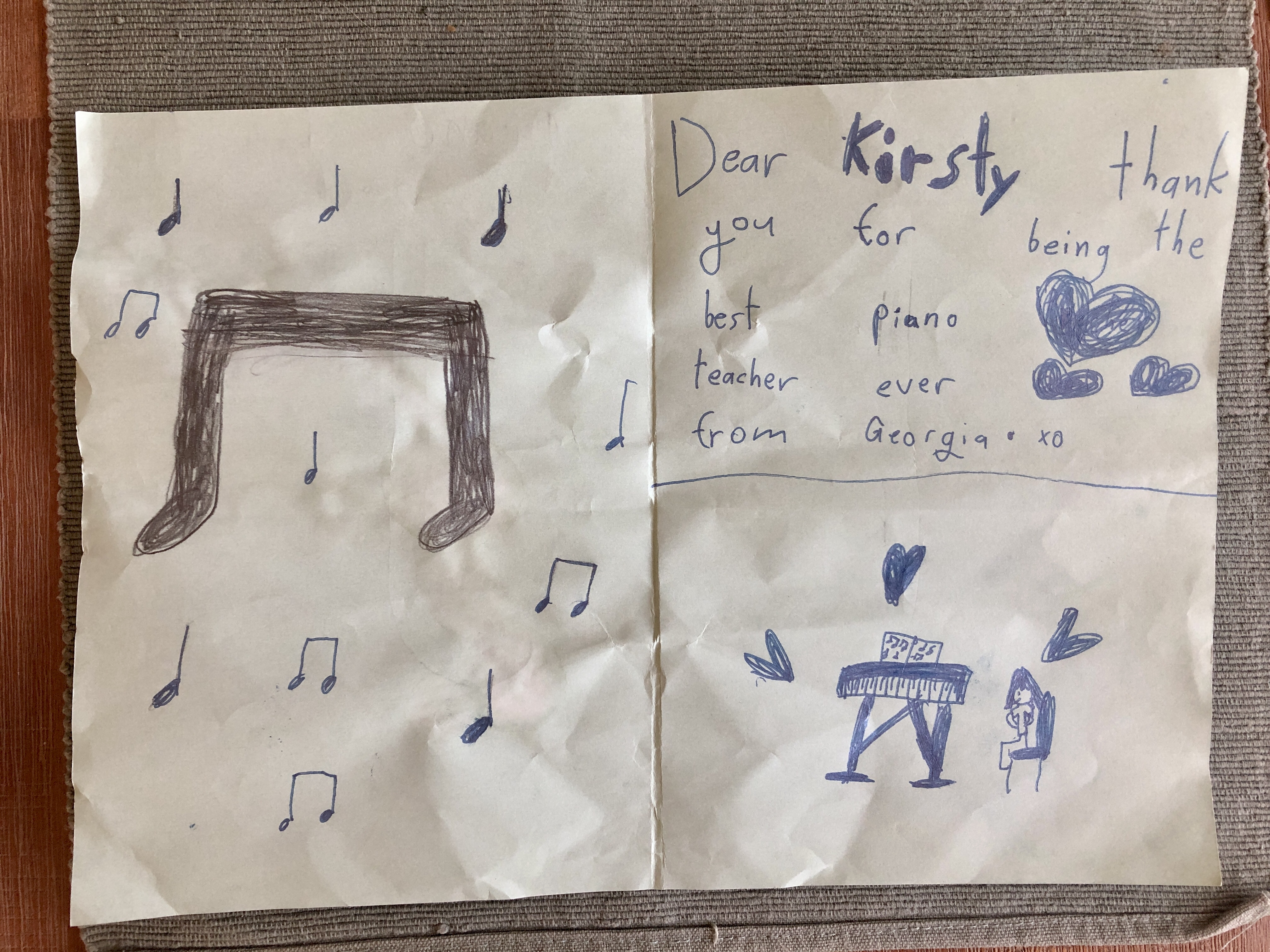
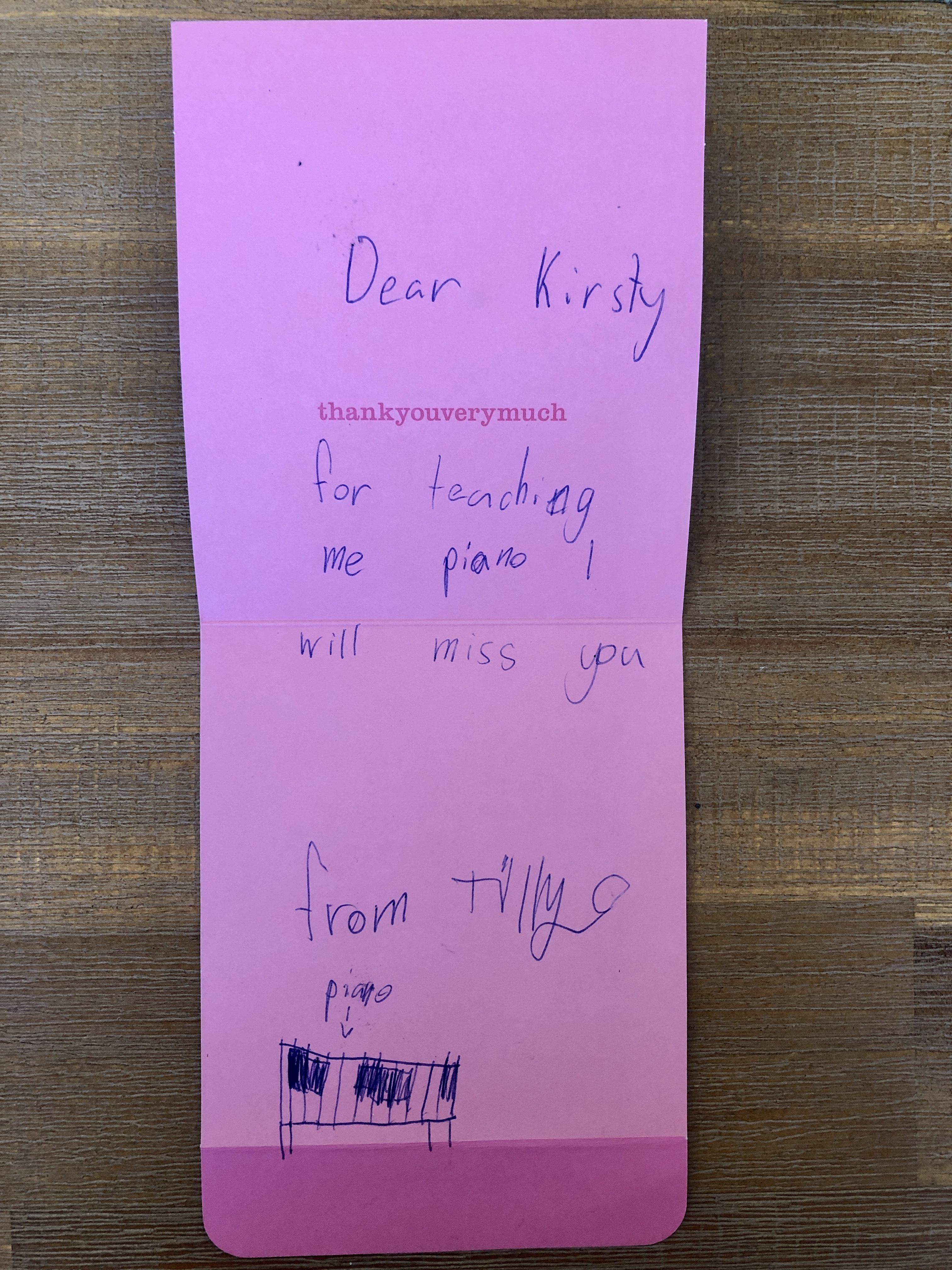
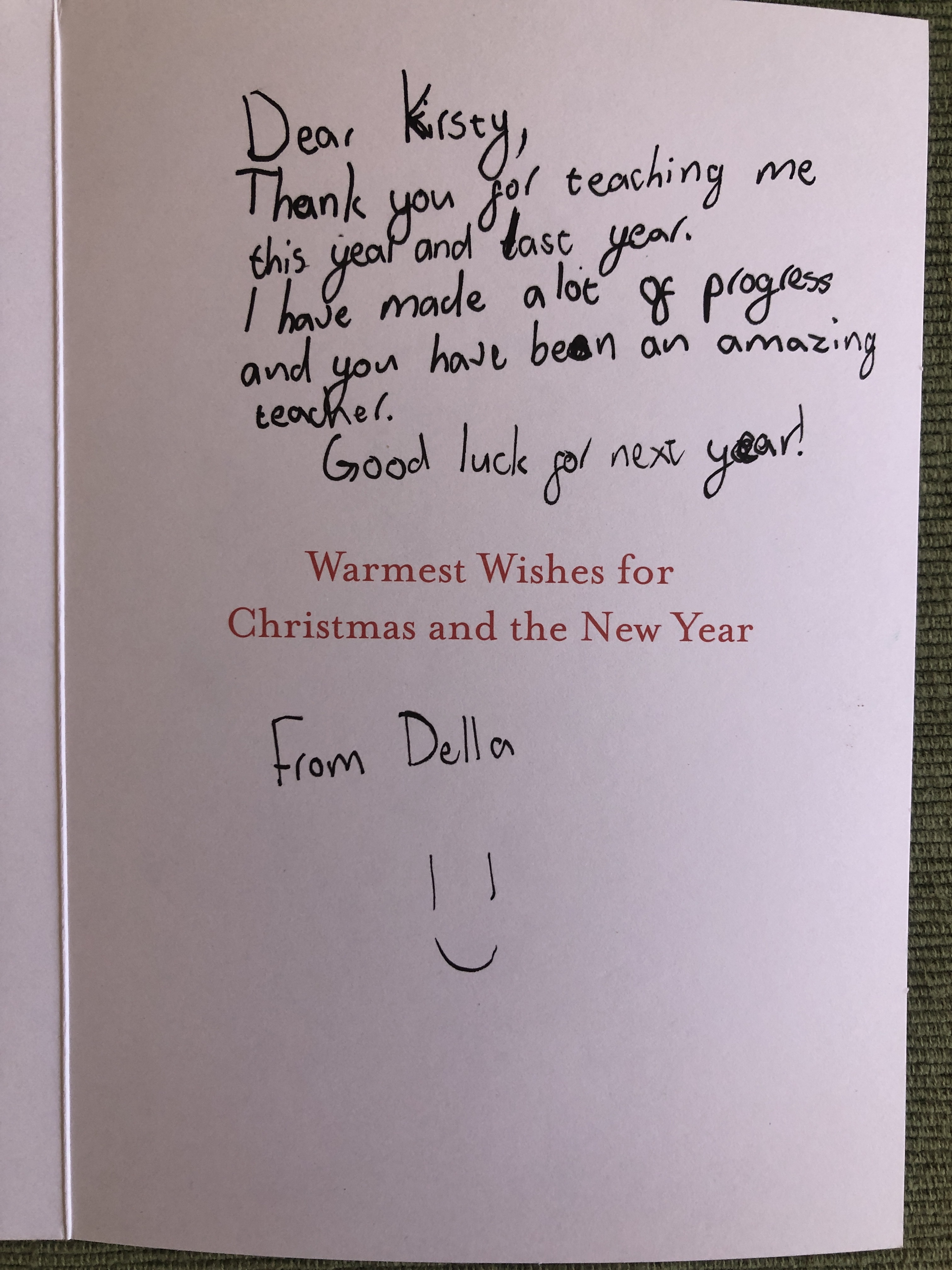
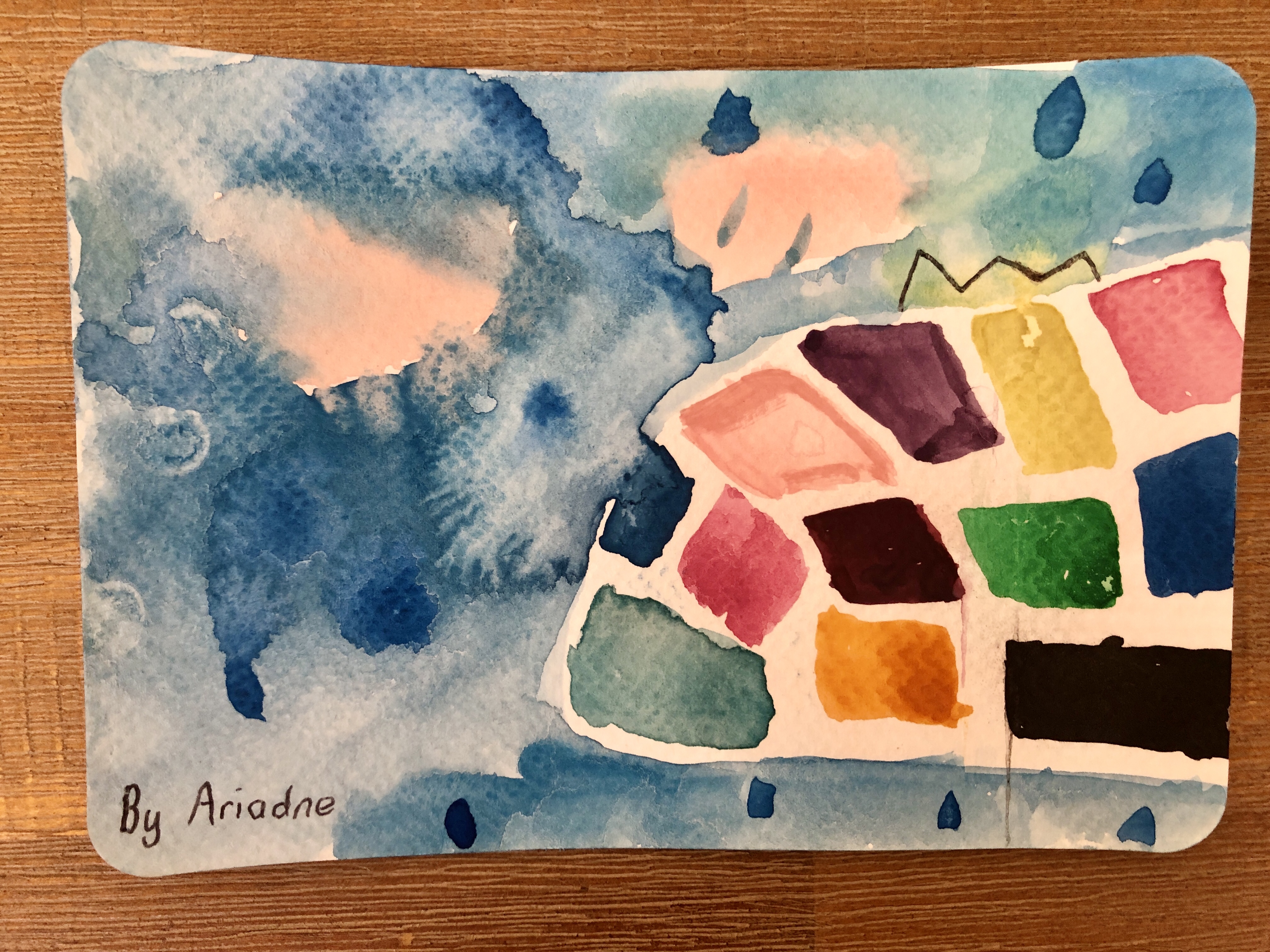
Thankyous from past students






This one made me lol 😂





Here's what Felix's Dad said about working with me
"Kirsty is an inspiring music teacher whose passion for music and for teaching children is evidenced by her professionalism, energy and the encouragement she provides her students.
She has helped instil in Felix a love of music and an appreciation of what can be achieved through practice.
We are delighted with the progress Kirsty has helped our son make as a pianist. He has good technique, plays with feeling and has an excellent ear.
We unequivocally recommend Kirsty as a piano teacher for primary school-aged children."
- Tom Westcott, Felix's Dad
Here's what Felix's Dad said about working with me
"Kirsty is an inspiring music teacher whose passion for music and for teaching children is evidenced by her professionalism, energy and the encouragement she provides her students.
She has helped instil in Felix a love of music and an appreciation of what can be achieved through practice.
We are delighted with the progress Kirsty has helped our son make as a pianist. He has good technique, plays with feeling and has an excellent ear.
We unequivocally recommend Kirsty as a piano teacher for primary school-aged children."
- Tom Westcott, Felix's Dad



